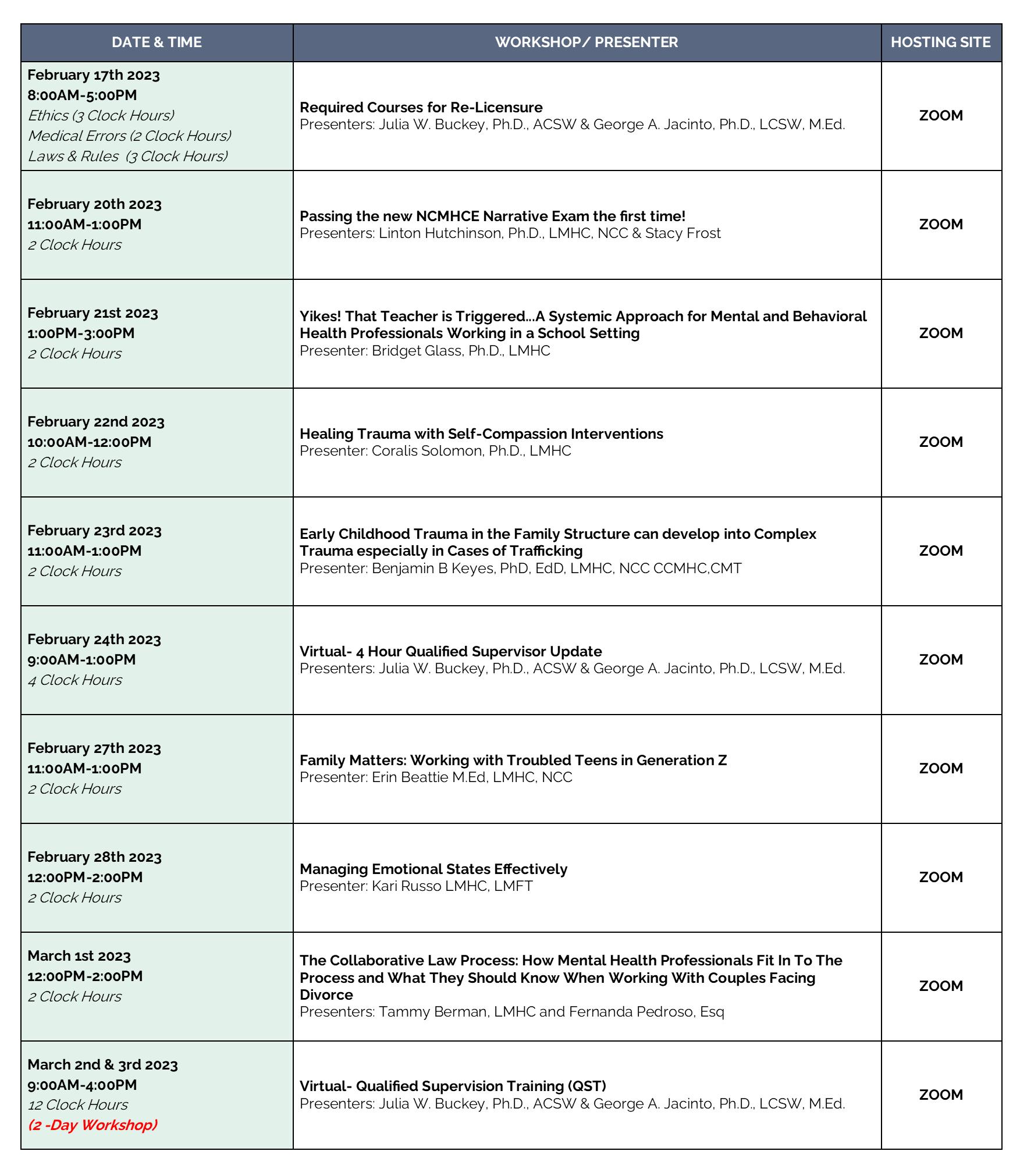SUMMIT COURSE DESCRIPTIONS
February 17th | 8:00 AM - 5:00 PM | 8 Clock Hours
Topic: Virtual Required Courses for Re-Licensure (Ethics, Medical Errors, Laws & Rules)
Presenters: Julie Buckey, Ph D , ACSW & George Jacinto, Ph D , LCSW, ME D , BS, PLLC
Subtopic: "I don't know what to do!": Ethical Dilemmas and Professional Accountability in Healthcare Settings
Description: The healthcare treatment environment, altered drastically during the COVID-19 pandemic, requires licensees serving adults, children, and families receiving health/mental health care to enhance their practice using a current, updated framework to ensure ethical and legal compliance
This course updates clinicians in 3 major areas: 1) Reviews recent changes to Codes of Ethics (NASW, 2018/2021; AMHCA, 2015/2020, and AAM&FT, 2015) focusing on use of technology and electronic communications, cultural competency/awareness, personal boundaries/self-care, communication safeguards, documentation, storage, and transfer of records, and practice mandates across legal borders
2) Reviews compliance requirements with the Web Content Accessibility Guidelines (WCAG) Federal statute (2018) to heighten compliance in providing full access/use of provider websites to those with visual/auditory limitations, paralleling updated Codes of Ethics and technology applications in service delivery
3) Reviews major changes to Chapter 765, Florida Health Care Advance Directive Act (2015) that opened communications between future patients and their appointed representatives, assigned new roles to physicians and hospitals, and provided (for the first time in Florida), a healthcare surrogate appointment for minors In combining Codes of Ethics and bioethics with applied assessment tools and practice models, clinicians can quickly identify, target, and deliver services compliant with ethical and legal mandates
The course concludes with a case study examining ethical/bioethical dilemmas and models of care within a case study assessment
CE Broker Tracking #: 20-794958
Learning Objectives:
List 4 components of the informed consent process applicable in healthcare settings
Name and describe 4 bioethical principles used to guide patient healthcare choices
Illustrate 4 options for patient representation under FS§765
Subtopic: "What can I do?": Strategies to Minimize Medical Errors
Description: "What can I do?": Strategies to Minimize Medical Errors addresses 3 core training areas mandated by FS§456 013(7) and the Florida 491 Board: 1) root-cause analysis (RCA); 2) ME reduction and prevention, and 3) patient safety The course presents essential definitions and strategies and addresses the primary problem in healthcare: communication Moving through a video-rich environment, updated for 2022, we'll view actual cases, sample case studies, and family member perspectives, then close with a profile of an professional client group, the "second victim" of medical errors, healthcare workers who commit medical errors
CE Broker Tracking #: 20-794930
Learning Objectives: 1 2 3
Define "medical error " (ME) per Agency for Healthcare Research and Quality definition List 3 causes and 3 strategies to reduce/prevent MEs in health and mental health settings by adhering to the policies and processes recommended by the Institute of Medicine and The Joint Commission Discuss 3 methods of effective healthcare communication strategies used to prevent/reduce MEs and enhance patient safety by applying policies and procedures from the Institute of Medicine, The Joint Commission, and empirical literature findings
Subtopic: Florida Laws and Rules: Updates for Clinical Practice
Description: This video-rich 3 hr course is required for 491 Board licensees every 3rd biennium, to inform and review most recent changes to FS§456 and 491, and the F A C 64B4 (Rule) Participants will view most recent changes and learn steps in conducting independent searches of laws and rules regulating practitioners under the Florida Department of Health, Florida Administrative Code, and 491 Board Changes come alive through a case study role play via telehealth delivery, case discussions and learning tools, and hands-on learning to maintain currency in the Florida Statutes and the Administrative Code (F A C 64B4) Also included: online search examples, supplementary support documents, updated 456, 491, and F A C 64B4 Change Tables, and course
Bibliography 11
CE Broker Tracking #: 20-794964
Learning Objectives:
1 2
3
Describe at least 5 key changes found in FS§456 and FS§491 and F A C Rule 64B4 (2016-2021) that influence practice of 491 Board licensed clinical practitioners
Discuss and apply at least 1 recent statutory change to a case study client to increase professional practice competency
Describe and demonstrate the 5 basic steps to obtain specific updates to FL Statutes and/or FL Administrative Code (FAC; Rules)
REGISTER NOW
February 20th | 11:00 AM - 1:00 PM | 2 Clock Hours
Topic: Passing the new NCMHCE Narrative Exam the first time!
Presenters: Linton Hutchinson, Ph D , LMHC, NCC & Stacy Frost
Description: The webinar covers three areas necessary to pass the new Narrative NCMHCE exam: knowing how the exam is constructed, knowing the areas covered on the exam, and learning a structured approach for dissecting the narratives. The new exam is based on a theoretical construct and evidencebased practices backed by research.
CE Broker Tracking #: 20-941666
Learning Objectives:
Knowledge how the narrative exam is constructed
Analysis of areas covered on the exam
Application of a structured approach for dissecting the narratives
REGISTER NOW
February 21st | 1:00 PM - 3:00 PM | 2 Clock Hours
Topic: Yikes! That Teacher is Triggered...A Systemic Approach for Mental and Behavioral Health
Professionals Working in a School Setting
Presenter: Bridget Glass, Ph.D., LMHC
Description: While teachers are an integral factor in academic outcomes, they are also significantly linked to students’ social and emotional wellness. Teachers often report some of the highest rates of professional distress among all occupations. Burnout, compassion fatigue (CF), and Secondary Traumatic Stress (STS) in teachers are serious mental health concerns that can greatly impede the emotional health of children and adolescents. Mental and behavioral health professionals have a unique opportunity to improve a school’s climate as they work toward creating an emotionally safe environment for students and clients. This presentation will include a foundational
overview regarding the vicarious impact of workrelated distress on student mental health with a focus on relationship management, emotional regulation, and attunement between safe adults and children (30 mins) The presenter will also demonstrate practical tools for promoting positive change within a school community (45 mins) Finally, the presentation will incorporate effective strategies for mental and behavioral health professionals to successfully collaborate with educators, administrators, and families of students
CE Broker Tracking #: 20-942352
Learning Objectives: 1 2
The presenter will explain the impact of teacher mental health on the emotional wellness of students
The presenter will demonstrate practical tools for psychoeducation, modeling, and deescalating teacher-student conflict in a school setting
3.
The presenter will outline strategies for collaboration within a school community such as establishing boundaries, reflection, and utilizing respectful communication to advocate for student mental health initiatives
REGISTER NOW
February 22nd | 10:00 AM - 12: 00 PM | 2 Clock Hours
Topic: Healing Trauma with Self- Compassion Interventions
Presenter: Coralis Solomon, Ph.D., LMHC, NCC
Description: The practice of self-compassion can be a healthy alternative to treat the negative symptoms from PTSD including arousal, avoidance, and intrusive thoughts. With self-compassion practices clients can experience a calming effect through their nervous system, confront shame safely, and disentangle intrusive memories with negative thinking. During this experiential presentation participants will learn the core principles and practices of self-compassion and how to implement them to process trauma effectively.
CE Broker Tracking #: 20-942434
Learning Objectives:
Learn core principles of self-compassion
Understand the relationship of self-compassion and
processing trauma
Experience clinical self-compassion practices to process trauma effectively.
REGISTER NOW
February 23rd | 11:00 AM - 1:00 PM | 2 Clock Hours
Topic: Early Childhood Trauma in the Family Structure can develop into Complex Trauma especially in Cases
1. 2. 3.
1. 2. 3.
of Trafficking
Presenter: Benjamin B Keyes, Ph D , Ed D , LMHC, NCC, CCMHC, CMT
Description: Human trafficking for purposes of prostitution occurs on a global scale impacting almost every country in the world according to a study done by Calliber and Associates for the Department of Justice (2000) Physical, emotional, and sexual abuse is the norm for these victims, and the road to recovery often mimics survivors of more traditional sexual abuse and domestic violence norms (Calliber, 2000) Secular models have been formulated by many in the Dissociative field (Braun, 1988; Putnam, 1989; Ross 1989, 2000; Krakrauer, 2001; Briere, 2001; ), and to date, only one Faith-Based model has been put forth (Freison, 1985) which is anti-theoretical to current standards of care (International Society for the Study of Trauma and Dissociation, 1994) The HEART (Healing Emotional Affective Response to Treatment) Model (Keyes, 2008, 2009, 2010, and 2018) offers a systematic methodology utilizing the existing standards of care and interpreting a Faith-Based overlay consistent with secular practice. This workshop will focus on the treatment needs of Survivors of Complex Trauma, and Trafficking who are mostly women and children and the specific therapeutic issues in treatment. The 3 phase model of treatment will be explored utilizing the 10 stages HEART model and demonstrating the Faith-Based integration within accepted secular parameters. Particular attention will focus on cognitive distortions both as they relate to the individual (Ross, 1991) and as they may form from a spiritual context. Both secular and Faith - Based methodologies will be discussed, compared, and looked at from the standpoint of integration.
CE Broker Tracking #: 20-942498
Learning Objectives:
To be able to apply spiritual integration concepts and techniques to existing and accepted counseling strategies in harmony to client needs as approach to being divergent because of a spiritual overlay.
To increase awareness to the magnitude of the problem of Human Trafficking and understanding of some of the social and spiritual ramifications. To understand and synthesize secular model of treatment with Faith-Based components in order to utilize an integrated approach to therapy which is consistent with current standards of practice.
REGISTER NOW
February 24th | 9:00 AM - 1:00 PM | 4 Clock Hours
Topic: Virtual 4 Hour QST Update
Presenters: Julie Buckey, Ph D , ACSW & George Jacinto, Ph D , LCSW, ME D , BS, PLLC
Description: This 4-Hr Continuing Education Course for Qualified Supervisors provides a comprehensive update to FL Laws and Rules; electronic delivery methods and confidentiality; supervisory documentation; practice models; challenges in supervision; cultural issues; accountability in the supervisory relationship; the business of supervision; ethical, legal, and regulatory issues surrounding delivery of teletherapy, and current best practices associated with Telemental Health The supervision model presented in the workshop is Feedback Informed Treatment in association with Deliberate Practice A discussion of Trauma Informed Care principles intermingled with the common core factors of psychotherapy is also included.
Enriched with video tutorials and case studies, supervisors will participate in various therapeutic perspectives: Person In Environment Centered Practice grounded in Common Core Factors, Trauma Informed Care, Feedback Informed Treatment, and the use of feedback in Deliberate Practice. Supervisory demonstrations include assessing feedback, observation of the supervisees' work with the client, the supervisees' Deliberate Practice plan development that includes completion of the Taxonomy of Deliberate Practice Activities in Psychotherapy, demonstration of Deliberate Practice, and administration examples of how to administer the Session Rating Scale and Outcome Rating Scale to the client, and supervisory demonstrations of best practices.
CE Broker Tracking #: 20-913252
Learning Objectives:
Review changes to Florida laws and rules relating to Interns and Supervisors. Analyze electronic delivery system for supervision and methods for ensuring confidentiality. Describe ethical, legal and regulatory issues of supervision, including documentation of the supervisory sessions.
Review Challenges in Supervision. Address how cultural issues can affect the supervisory relationship.
Discuss accountability of both the supervisor and
1.
2.
3.
1. 2. 3. 4. 5. 6. 13
the intern in the supervisory relationship
Discuss the business aspects of supervision
Discuss the ethical, legal and regulatory issues of teletherapy
Review research of supervision models
REGISTER NOW
February 27th | 11:oo AM - 1:00 PM | 2 Clock Hours
Topic: Family Matters: Working with Troubled Teens in Generation Z
Presenter: Erin Beattie, M Ed , LMHC, NCC
Description: Teens today are more stressed and less resilient than at any time in recent history The pandemic has made worse issues of anxiety, depression, peer pressure and substance abuse
Families can reel and fail under the burden of teens who fail to thrive This presentation will give a detailed and thorough overview of mental health trouble, substance abuse, complex trauma, and dysfunctional family patterns found in struggling adolescents that signal the need for higher, more restrictive levels of care.
CE Broker Tracking #: 20-942538
Learning Objectives:
Family Matters: Working with Troubled Teens in Generation Z
Participants will describe elements of a specific healing process for families of adolescents in recovery.
Participants will describe unique psychological and biological capacities of teens that struggle with substance abuse, complex trauma, and family dysfunction.
REGISTER NOW
February 28th | 12:00 PM - 2:00 PM | 2 Clock Hours
Topic: Managing Emotional States Effectively
Presenters: Kari Russo, LMHC, LMFT & Edward Maerkl, Registered Mental Health Counselor Intern
Description: Managing Emotional States Effectively© or MESE for short, is an evidence informed treatment protocol that is a brief, adaptable, eclectic, and effective technique that can be easily utilized in 20-30 minutes of a session. MESE is the result of a collaboration between a Psychiatrist, Counselor and First Responder to bring into the future a fresh technique that is adaptable enough for a professional counselor to utilize in session and for treatment planning, but simple enough that a trained paraprofessional (i.e. clergy, peer supporter or coach), can utilize it in limited situations.
CE Broker Tracking #: 20-942564
Learning Objectives:
1 2
3
Participants will understand the benefits of Managing Emotional States Effectively (MESE) for clients
Participants will understand how utilizing MESE can reduce vicarious trauma and burnout in Counselors
Participants will understand how MESE can assist in treatment planning
REGISTER NOW
March 1st | 12:oo PM - 2:00 PM | 2 Clock Hours
Topic: The Collaborative Law Process: How Mental Health Professionals Fit In To The Process and What They Should Know When Working With Couples
Facing Divorce
Presenters: Tammy Berman, LMHC & Fernanda
Pedroso, Esq
Description: The Collaborative Law Process is a new emerging alternative dispute resolution process that most people still don't know about. The Collaborative Law Process offers a more comprehensive, humanistic, interest-based approach to families transitioning through divorce, using a multidisciplinary team of professionals. Mental Health Professionals are an integral part of the process and offer families and spouses a greater opportunity to resolve their disputes in a more comprehensive, protective and effective way with the support of the team.
CE Broker Tracking #: 20-942582
Learning Objectives:
Attendees will be able to identify at least 3 hallmarks of the Collaborative Process that distinguish it from other divorce options in Florida. Attendees will be able to identify at least three ways they can be a part of the Collaborative Process.
Attendees will be able to identify at least three ways this process benefits and protects a families/client's emotional needs and interests.
REGISTER NOW
March 2nd-3rd | 9:00 AM - 4:00 PM | 12 Clock Hours
Topic: Virtual 12 Hour Qualifies Supervision Training
Presenters: Julie Buckey, Ph.D., ACSW & George Jacinto, Ph.D., LCSW, ME.D., BS, PLLC
Description: In this 12-hr. continuing education course required to meet the qualifications for Qualified Supervisory Training, the didactic, engaging, and interactional instruction will be delivered in a virtual format, supporting segments of didactic approaches enhanced through model(s), styles of supervision, and
1. 2. 3.
1. 2. 3.
trauma informed care
Updated and current best practice approaches will be explored, including distinctive issues that arise in supervision such as cultural, gender, ethnicity, power, economics, and secondary traumatic stress The interactive discussion will be framed against the backdrop of current laws and rules within the changing atmosphere of practice Telemental Health in practice will be explored and the use of Telemental Health practice post-COVID 19 will be discussed Best practice examples of Telemental Health will be examined
Exploration of the latest Florida laws and Board rules for interns and supervisors will include a discussion of the role of evaluation in supervision in the context of
Practice, Feedback Informed Treatment and Trauma
Informed Care in their qualified supervision practice
CE Broker Tracking #: 20-913248

Learning Objectives:
Review the Major Models and Styles of Supervision and Trauma Informed Care for clinical social work, marriage and family therapy or mental health counseling
Develop a personal model of supervision, drawn from existing models of supervision and preferred therapeutic styles
Understand the co-evolving dynamics of therapistclient and supervisor-therapist-client relationships Explore distinctive issues that arise in supervision Address the contextual variables in practice such
If you have any questions, please email naomi@flmhca.org or call The FMHCA Office at 561-228-6129

15 InSession Magazine is an online magazine created and published by FMHCA each quarter to be a dedication to Mental Health Providers. To be featured in FMHCA's online magazine,
submit
article by March 15th
publication in the April 1st issue. Submit Here
Writers
agree to InSession Terms Submission
ensure publication
please
your
for possible
must
does not

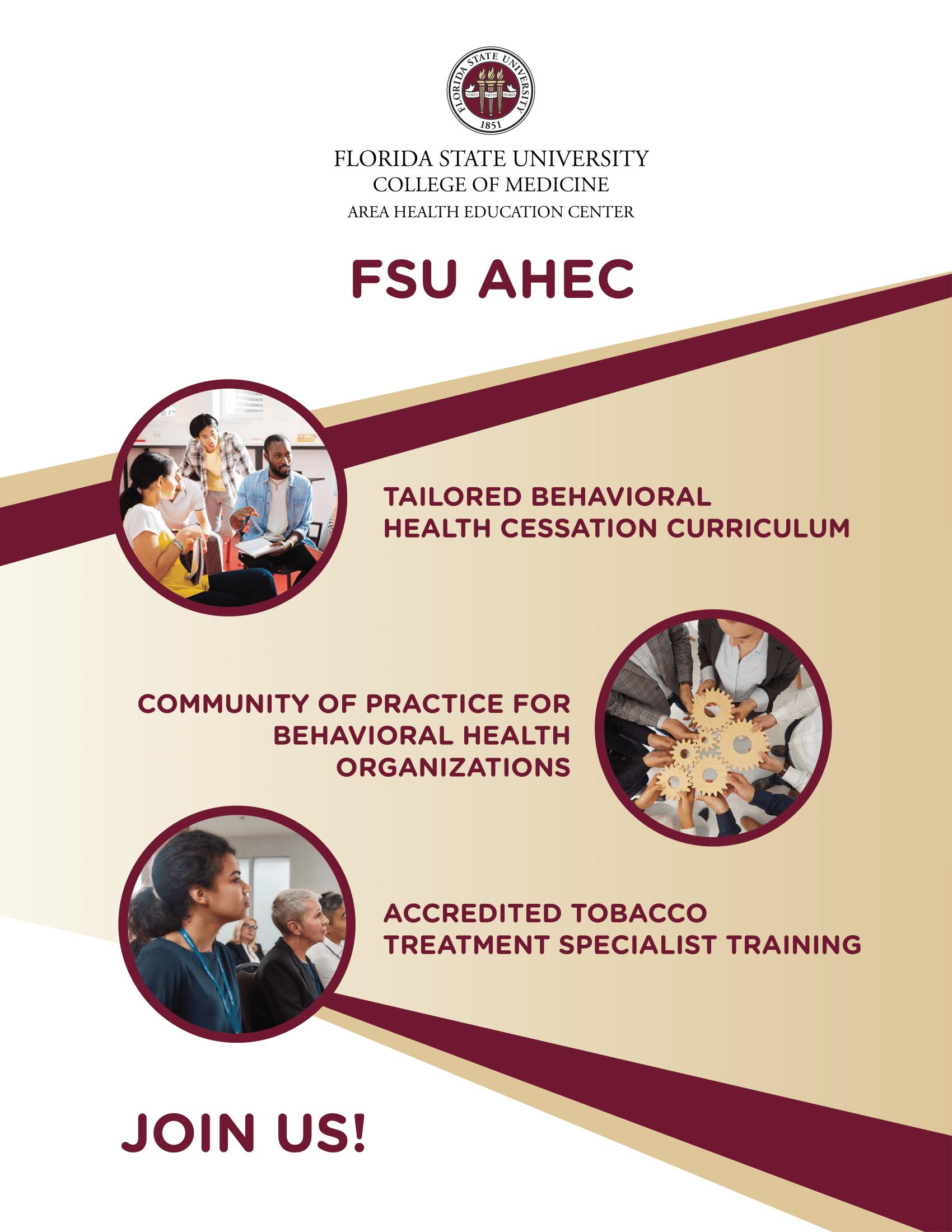


















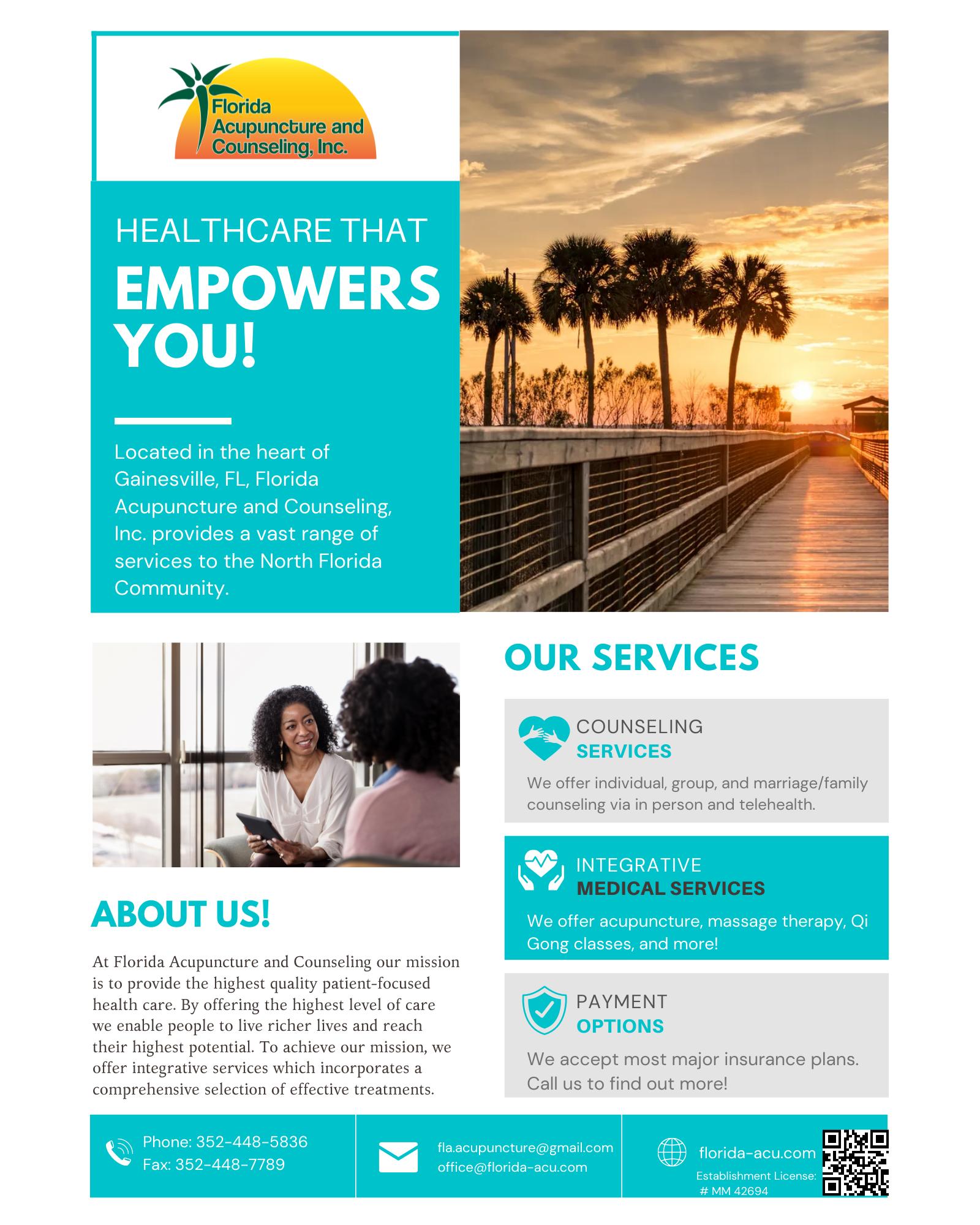


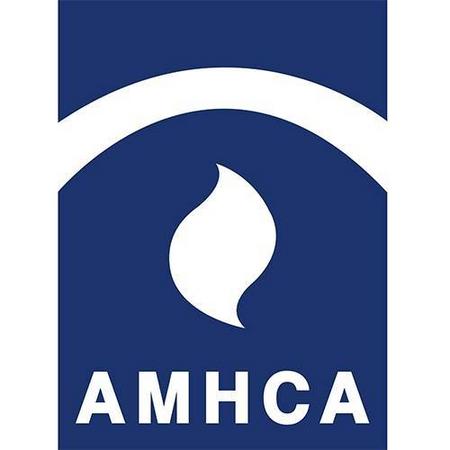




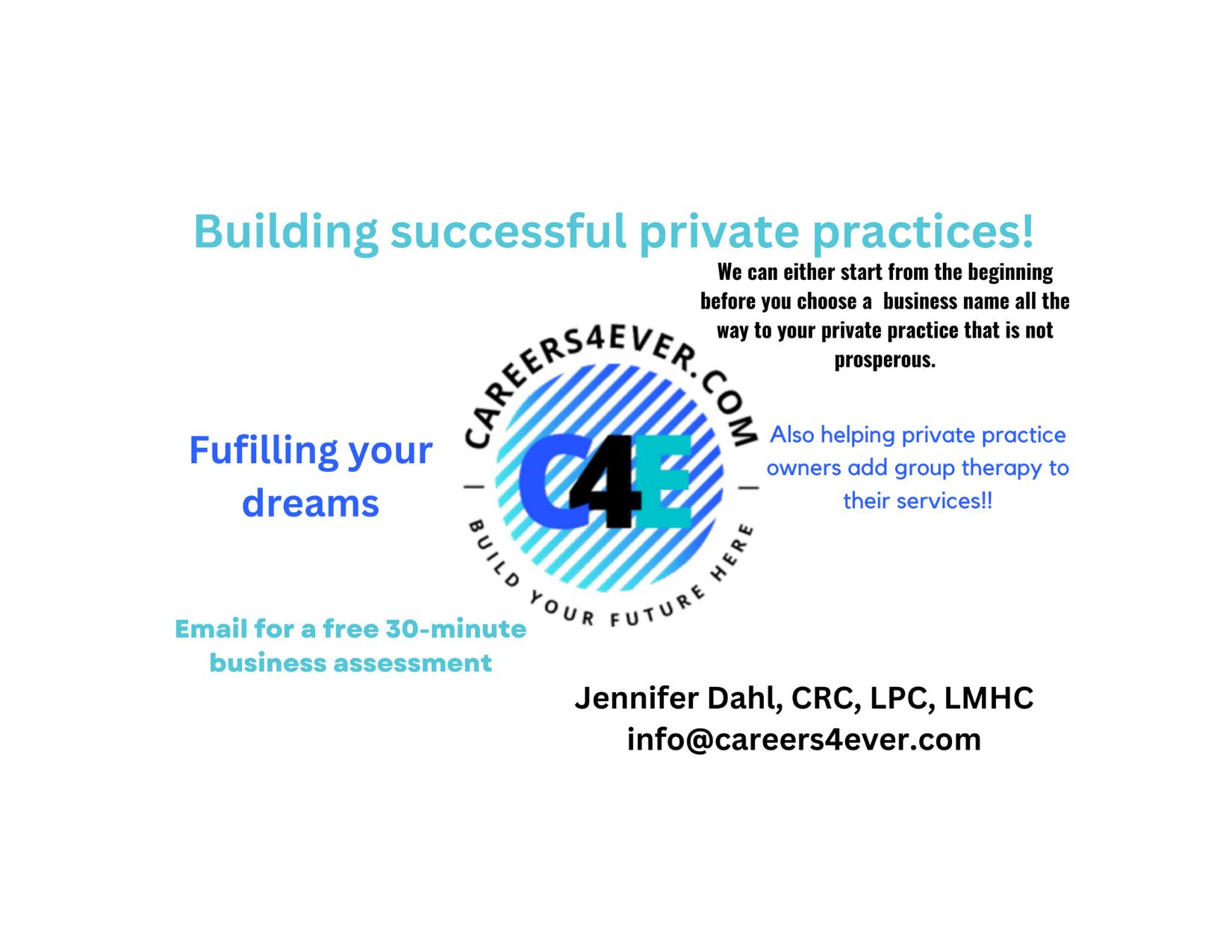 Shop Now
Shop Now
